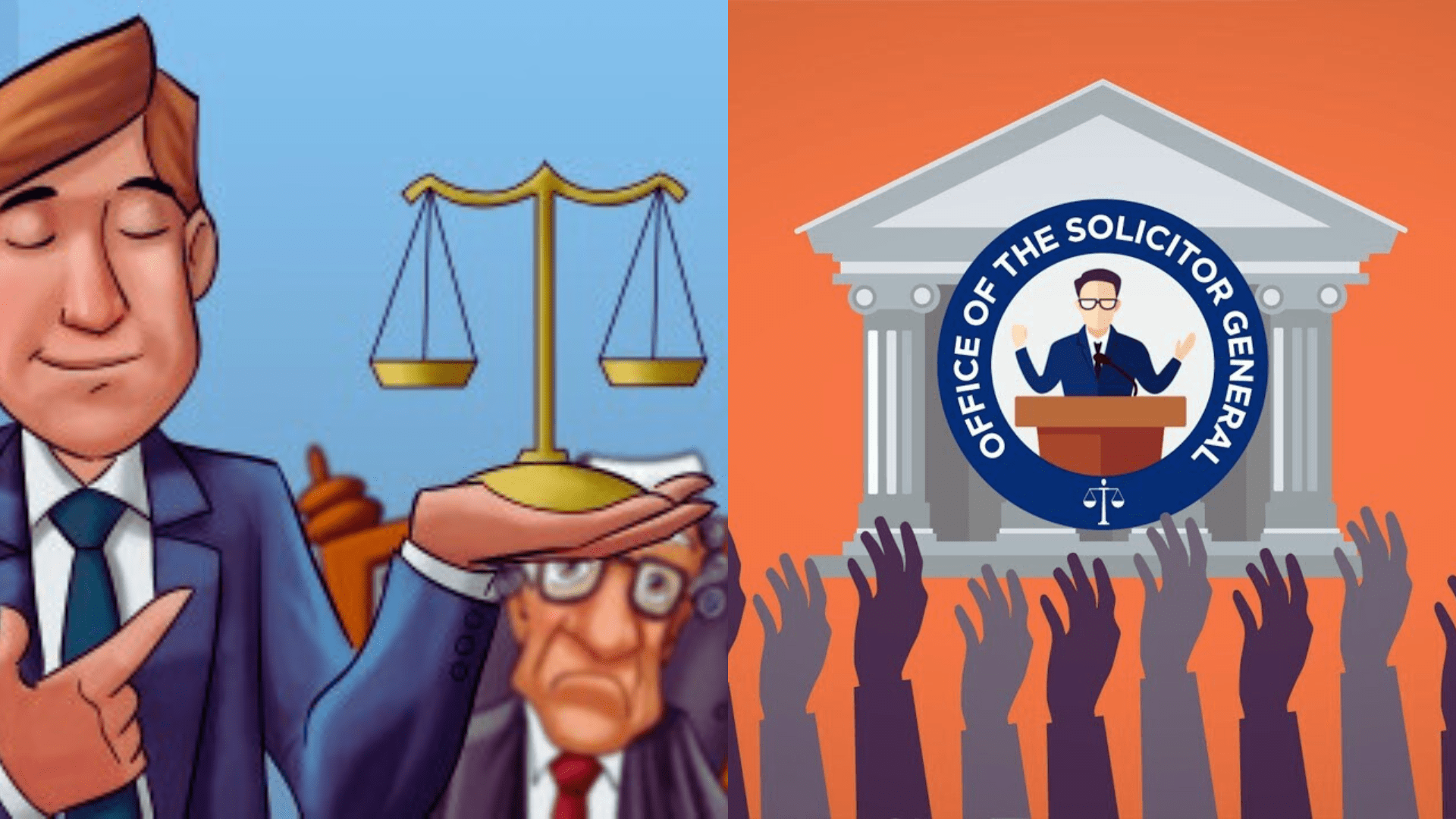The Solicitor General of the United States plays a crucial role in the American legal system, acting as the principal advocate for the federal government before the Supreme Court. This position is responsible for supervising and conducting government litigation in the United States Supreme Court. The Solicitor General ensures that the United States speaks in court with a single, coherent voice, representing the interests of the United States and its officers and agencies in all cases before the Supreme Court. Additionally, the role involves determining the cases in which Supreme Court review will be sought by the government, and the Solicitor General may also provide legal advice to the executive, particularly in constitutional matters.
The Roots of the Role
Evolution Over Time

The role of the Solicitor General of the United States has significantly evolved since its establishment, reflecting changes in the country’s legal and judicial landscape. Originally part of the U.S. Department of Justice, the Solicitor General’s position was created to represent the United States in Supreme Court cases, determining the legal positions the government would take. Over time, the role has expanded beyond merely deciding on the government’s stance in Supreme Court litigation to conducting and supervising all Supreme Court litigation on behalf of the United States.
The evolution of the Solicitor General’s activism and the strategic role in appellate advocacy highlights the position’s dynamic nature. State solicitors, akin to the federal Solicitor General, further emphasize the specialized appellate advice and representation trend, signifying the role’s importance at both state and federal levels.
Impact on Legal Systems
The role of the Solicitor General has a profound impact on the United States legal system, serving as a pivotal liaison between the judiciary and the executive branch. The 1870 Act that created the position set high expectations, entrusting the Solicitor General with significant responsibilities, including potentially writing legal opinions and influencing the direction of federal litigation. Through the authority to deny federal agencies and departments access to the Supreme Court, the Solicitor General exerts considerable influence over agency and departmental actions, shaping legal outcomes and policy directions.
Moreover, the Solicitor General’s responsibility to present facts and legal arguments in a way that upholds the rule of law adds a critical layer of integrity and accountability within the judiciary. This role involves balancing substantive law with procedural fairness and represents the government’s interests before the Supreme Court, thereby influencing legal precedents and interpretations. The Office of the Solicitor General also aids the Supreme Court in case selection, representing the government’s perspective and considering the potential impact of decisions on national policies.
Understanding the Position
Key Responsibilities
The Solicitor General plays a critical role in the legal system, functioning as a bridge between the executive branch and the judiciary. Key responsibilities include:
- Representing the Government in Court: The Solicitor General is primarily responsible for representing the government in the Supreme Court, organizing, preparing, and arguing cases on behalf of the United States.
- Providing Legal Advice to the Executive: The Solicitor-General offers legal counsel to the executive branch, especially on constitutional matters, ensuring the government’s actions adhere to the law.
- Serving as an Officer of the Supreme Court: Beyond advocacy, the Solicitor General has a duty to the Court itself, upholding its integrity and ensuring that the government’s litigation stance is consistent and principled.
- Supervising Government Litigation: The Office of the Solicitor General oversees and conducts government litigation before the Supreme Court, playing a crucial role in the legal positioning and strategy of the United States government.
Differences from Other Legal Roles
The Solicitor General and the Attorney General hold distinct positions within the legal framework, each with unique responsibilities:
- Position in the Hierarchy: The Solicitor General is typically subordinate to the Attorney General, providing legal advice and services primarily to the government and its officials. The Solicitor General’s role is more specialized compared to the broader responsibilities of the Attorney General.
- Role and Responsibilities: The Solicitor General’s main function is to supervise and conduct government litigation before the Supreme Court, representing the government in legal matters at this level. In contrast, the Attorney General’s duties are more expansive, encompassing the overall legal affairs of the government, including but not limited to litigation.
- Constitutional and Statutory Basis: Unlike the Attorney General, whose role is often defined within the Constitution, the position of the Solicitor General is typically a statutory appointment, not explicitly outlined in the Constitution. This difference underscores the Solicitor General’s specialized function in the legal system.
Solicitor Generals Around the World
United States
The role of the Solicitor General varies significantly around the world, reflecting differences in legal systems, government structures, and national traditions. In the United States, the Solicitor General holds a unique position as the chief representative of the United States government before the Supreme Court. This role involves arguing cases on behalf of the government and determining the legal position that the government will take in the Supreme Court.
Globally, solicitors generally often serve as the chief legal advisors or representatives of their respective governments in the higher courts, but the specific duties and powers associated with the position can differ. For example, in some countries, the Solicitor General may have more autonomous powers in deciding which cases to prosecute or defend on behalf of the state, while in others, they may primarily act under the direction of the Attorney General or another senior legal official.
The variations in the role across jurisdictions can be attributed to factors such as the scope of legal authority, the relationship between the executive and judicial branches of government, and historical legal traditions within each country.
India
In India, the Solicitor General is the second highest-ranking legal officer of the government, serving directly under the Attorney General of India. The Solicitor General’s primary role is to assist the Attorney General and represent the Government of India in the Supreme Court and other courts. This position is vital in advising the government on legal matters and is appointed by the President of India. The Solicitor General, along with other appointed Additional Solicitors General, plays a crucial role in the legal framework, handling significant cases and advising various ministries. The position is not only a testament to the legal acumen of the holder but also reflects the trust bestowed by the government in managing sensitive and significant legal matters.
United Kingdom
In the United Kingdom, the role of the Solicitor General for England and Wales is a key legal position within the government. Known informally as the Solicitor General, this individual is one of the Law Officers of the Crown. The Solicitor General’s responsibilities are diverse and significant, including providing legal advice to the Crown and representing the government in legal proceedings. This position works closely with the Attorney General, supporting across a broad spectrum of responsibilities. These include deputizing for the Attorney General and handling specific legal duties assigned to the Solicitor General’s office. The office holds a critical role in the legal and constitutional framework of the UK, contributing to the maintenance of the rule of law and the administration of justice.
Other Countries
In common law jurisdictions, the role of the Solicitor General varies but generally includes providing legal advice to the government and representing it in court, especially in constitutional matters. The Solicitor General of the United States, for example, ensures the country speaks with a single voice in court and supervises government litigation in the Supreme Court. This role can be mirrored in other countries with similar legal systems, where the Solicitor General may act as the government’s principal legal advisor or advocate in higher courts.
The specific duties and importance of the Solicitor General can vary significantly from one country to another, depending on the legal system, the constitutional framework, and the tradition of the legal profession within that country. In some countries, the Solicitor General may play a key role in advising the executive branch or representing the state in complex legal disputes, including those that involve constitutional interpretation or international law.
The position of Solicitor General, where it exists, typically requires a deep understanding of the law, exceptional advocacy skills, and the ability to navigate the intersection of law and policy. The evolution of this role in different jurisdictions reflects changes in the legal landscape, including the digital transformation of businesses and the increasing complexity of the regulatory environment.
How Does One Become a Solicitor General?
Qualifications Required
To become a Solicitor General, particularly in the United States, the process involves a presidential appointment followed by confirmation by the Senate. Although specific qualifications can vary by country, common requirements include:
- Law Degree: A foundational requirement is obtaining a law degree from a recognized university. This can be a 3-year LLB program after graduation or a 5-year integrated law program after high school.
- Legal Experience and Expertise: Candidates typically need substantial experience in the legal field, demonstrating excellent research and writing skills. This experience often includes practicing law, preferably with a focus on constitutional law, and possibly serving in significant legal roles within the government or judiciary.
- Appointment and Confirmation: In countries like the United States, the Solicitor General is appointed by the President and must be confirmed by the Senate, indicating the role’s political and legal significance.
- In India, the Solicitor General is considered the subordinate of the Attorney General and serves as the chief legal advisor and primary lawyer for the government. The path involves a law degree and extensive legal practice, particularly in constitutional law.
The journey to becoming a Solicitor General is highly competitive and requires a blend of legal education, extensive practice, and recognition within the legal community.
Appointment Process
The appointment process for a Solicitor General varies between countries but generally involves government selection or nomination followed by an approval or confirmation process. Here are some examples:
- United States: The Solicitor General is appointed by the President and reports directly to the U.S. Attorney General. The appointment requires confirmation by the Senate.
- India: The appointment of the Solicitor General and Additional Solicitor General is proposed at the level of Joint Secretary (or Law Secretary) in the government. This suggests a government-driven nomination and selection process.
- General Practice in Several Countries: In many countries, judicial appointments, including positions like the Solicitor General, involve governmental appointment. This may include countries like Argentina, Australia, Canada, and others where the government plays a significant role in the selection of judges and legal officers.
- Specific Cases: Some countries have particular conventions or procedures. For example, in certain jurisdictions, the attorney-general may recommend new appointments for judicial positions, with some exceptions depending on the court or the position’s significance.
The specifics of the process can vary significantly by country, including the role of the government, the involvement of legal or judicial committees, and the requirement for legislative or executive confirmation.
In the Limelight
Landmark Cases
Solicitors General, both in the United States and India, have been involved in several landmark cases that have had significant legal and societal impacts. Here are examples from both countries:
- United States: The Office of the Solicitor General in the U.S. Department of Justice plays a crucial role in representing the federal government before the Supreme Court. While the search results do not list specific cases, the office’s involvement in high-profile cases, including those concerning reproductive rights and other constitutional issues, is well-documented.
- India: Gopal Subramanium, during his tenure as Solicitor General of India, was involved in notable cases such as acting as the Special Public Prosecutor in the prosecution of Ajmal Kasab, the sole surviving terrorist of the 2008 Mumbai attacks. He also appeared in Asoka Kumar Thakur v. Union of India, a significant case considering reservations for economically backward classes.
These examples reflect the crucial role Solicitors General play in shaping the legal landscape through their advocacy and involvement in cases of national importance.
Controversial Decisions
The role of the Solicitor General often places them at the heart of some of the most politically and socially charged cases before the Supreme Court. A few instances have underscored this controversial aspect:
- Travel Ban: The Solicitor General’s defense of President Donald J. Trump’s travel ban represented one of the most politically charged cases, highlighting the intersection of law, policy, and politics.
- Supreme Court Appeals: Former Solicitors General, along with prosecutors and judges, have filed briefs in support of reviewing significant cases, demonstrating the lasting impact of their advocacy beyond their tenure.
- Japanese-American Internment: Perhaps one of the most historically significant instances involved the Solicitor General’s role during the Japanese-American internment cases of World War II. The acknowledgment of errors by the Solicitor General’s office in these cases underscores the profound implications of their work on civil liberties.
These instances highlight the Solicitor General’s complex role in navigating legal, ethical, and political shoals, especially in cases that garner national attention and provoke widespread debate.
The Solicitor General Today
Recent Developments
Recent developments indicate the active role and significant transitions within the Office of the Solicitor General:
- Acknowledgment of a Shift in Supreme Court Practice: The current U.S. Solicitor General, serving since 2021 under the Biden administration, has acknowledged a “real shift” in Supreme Court practices, particularly highlighting the rise of the emergency docket. This change affects how cases are brought before the Supreme Court and underscores the evolving landscape the Solicitor General must navigate.
- Appointment of New Solicitors General at State Level: Recent months have seen new appointments in the position of Solicitor General at the state level, reflecting ongoing changes and the importance of this role within state legal systems. For instance, Tennessee and Idaho have announced new appointments to these positions, emphasizing the significance of the Solicitor General in representing state interests in legal matters.
These developments underscore the dynamic nature of the Office of the Solicitor General, both at the federal and state levels, in adapting to new legal challenges and shifts in judicial processes.
Future Prospects
The role of the U.S. Solicitor General, as the federal government’s top lawyer before the Supreme Court, is evolving amidst changing legal landscapes and judicial practices. Prospects for the Solicitor General include:
- Exploring New Legal Areas: Elizabeth Prelogar, the current U.S. Solicitor General, emphasized exploring new areas as part of her duties, indicating an openness to addressing emerging legal challenges and adapting to the evolving demands of the role.
- Advisory Roles and Legal Opinions: The Solicitor General’s duties have historically included representing the United States before the Supreme Court and providing legal opinions, a foundational aspect that continues to define the office’s purpose and influence.
- Reevaluation of Influence: There’s an ongoing debate about whether the Solicitor General still holds the unofficial title of “The Tenth Justice,” a reflection on the office’s influence and its relationship with the Supreme Court. This reevaluation may impact how the Solicitor General’s role is perceived and exercised in the future.
- Diverse Responsibilities at the State Level: State Solicitor Generals play varied roles, from litigating cases to advising on legal and policy issues, suggesting a multifaceted future for these positions that could influence the federal role indirectly.
These facets collectively point towards a future where the Solicitor General’s office continues to adapt, facing new legal challenges while upholding its foundational duties.
Wrapping Up
The Solicitor General stands as a pillar of the legal community, representing the government’s interests and playing a pivotal role in shaping the law. From its historical roots to its modern-day manifestations, the position is a fascinating blend of legal expertise, political acumen, and public service. As we’ve seen, the journey to becoming a Solicitor General is rigorous, but the impact of the role is undeniable, leaving an indelible mark on the legal landscape around the world.
Read also: What is a Black Swan Event?




